With summer vacation here and the sun finally peeking through the clouds, you know that before long, Fourth of July celebrations will be well underway. On this, one of the most festive holidays of the year, you’ll often see flag-lined streets, red, white, and blue décor, and barbecues ablaze. Families will come together, with kids splashing in the pool while the adults drink a refreshing beverage in the sun. The entire day will finish with a capstone display of colorful exploding gunpowder high in the sky.
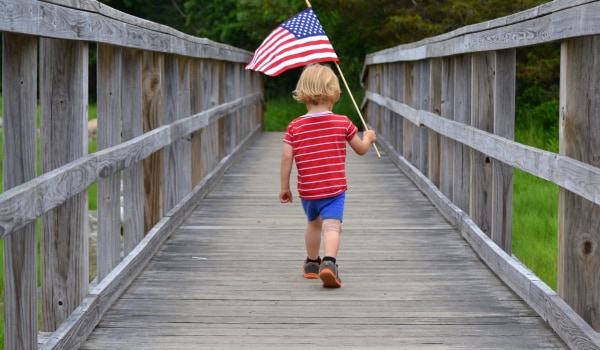
Have you ever wondered why we shoot off fireworks? Why the huge festivities? Smithsonian Magazine said it best: “Because we always have.” The city of Philadelphia kicked off the tradition a year after the signing of the Declaration of Independence (which, fun fact, didn’t actually happen until August 2 – but Congress did approve the text on July 4) with a parade, toasts, decorations, and fireworks. Boston held their own celebration that same year, also complete with fireworks.
While this patriotic holiday is a great time for Americans to get together to celebrate the birth of our nation, with fireworks, hot dogs, swimming, and other fun activities, it can also be a dangerous holiday for kids and pets. Between loud noises, crowded festivities, too much sun, swimming pool hazards and exploding gunpowder, there are many opportunities for injuries. If you want to enjoy your holiday without worry, check out these 20 tips that are sure to make your celebration safer for your family!
For the Animals:
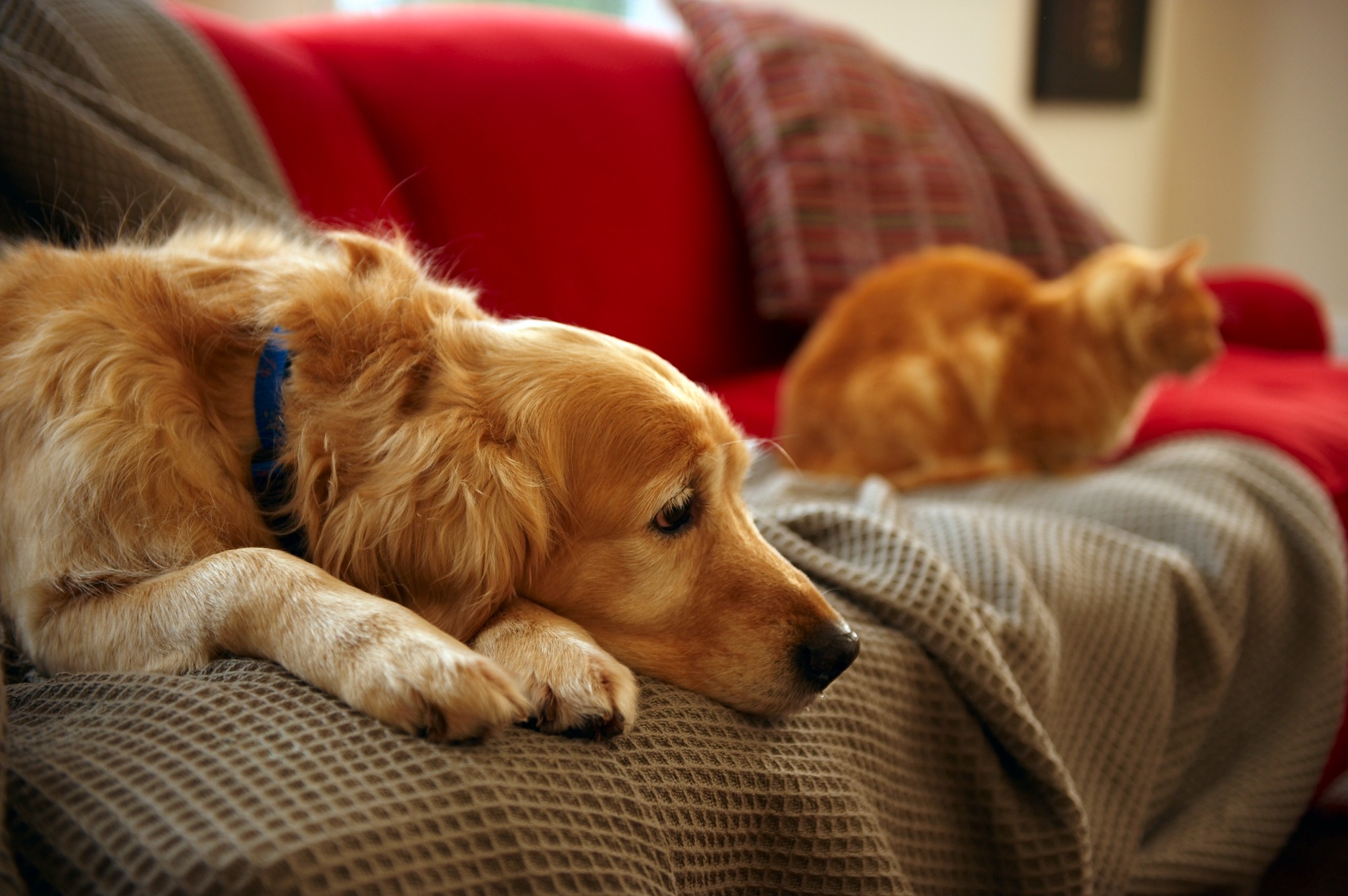 Did you know that the fifth of July is one of the busiest days of the year for animal shelters? Some pets escape thanks to inattentive party-goers, others run away (and keep running) out of fear of the fireworks. Animal Control Services report that the number of lost pets increases by 30 percent immediately after the 4th of July and an estimated 30 to 60 percent of lost pets are euthanized because animal control is unable to identify the pet’s family, according to PR Newswire. Here are some tips on how to keep your furry friends safe this year.
Did you know that the fifth of July is one of the busiest days of the year for animal shelters? Some pets escape thanks to inattentive party-goers, others run away (and keep running) out of fear of the fireworks. Animal Control Services report that the number of lost pets increases by 30 percent immediately after the 4th of July and an estimated 30 to 60 percent of lost pets are euthanized because animal control is unable to identify the pet’s family, according to PR Newswire. Here are some tips on how to keep your furry friends safe this year.
Use Pet-friendly bug spray to avoid poisoning. No DEET for dogs!
Understandably, you want to keep your pet safe from bug bites (which can lead to worms or West Nile), but you’ll need to check the label before you use any bug spray on your pets. Not all tick/mosquito repellent is pet-safe. A repellent that contains DEET can cause vomiting, loss of coordination, and seizures in dogs and cats. Be sure to look for a product labeled “safe for pets.”
Keep glow bracelets and citronella away from animals.
Glow bracelets and necklaces are fun for humans but not for dogs or cats. Keep these away from all pets to avoid excess drooling, mouth irritation and vomiting. If you notice one leaking, toss it to keep your little ones safe, too. On the bright side, the chemical inside a glow stick is very bitter, so it’s not likely that a kid or pet will keep noshing once they get a taste. But it’s always best to take extra precaution. (Bonus: buy these at a store like Dollar General and not at the parade or celebration. You’ll save a ton of cash).
Have your dog chipped and check your gates before party day.
One of the best ways to keep your pet safe over the holiday is to do a little prep work. If you haven’t done so already, you can have your dog or cat microchipped. This electronic chip allows a shelter or vet to find you if someone brings your pet into their facility. Make sure your pet is wearing a collar and double check your gates and fences to prevent escape (especially if you have horses).
Keep your eye on the chow to prevent your dog from overeating and from eating the wrong foods.
Dogs have sensitive tummies. Keep an eye on guests (especially little ones who love to share) when meal time arrives. Overfeeding is just as dangerous as eating the wrong foods for your pet. Popular barbecue foods to avoid giving your pet include avocado, onions, grapes, ice cream/milk, chocolate, fat trimmings, and raw meat. Instead, let your pooch snack on treats like watermelon, cantaloupe, blueberries, strawberries, apples, baby carrots, peanut butter, cooked chicken (plain), and green beans.
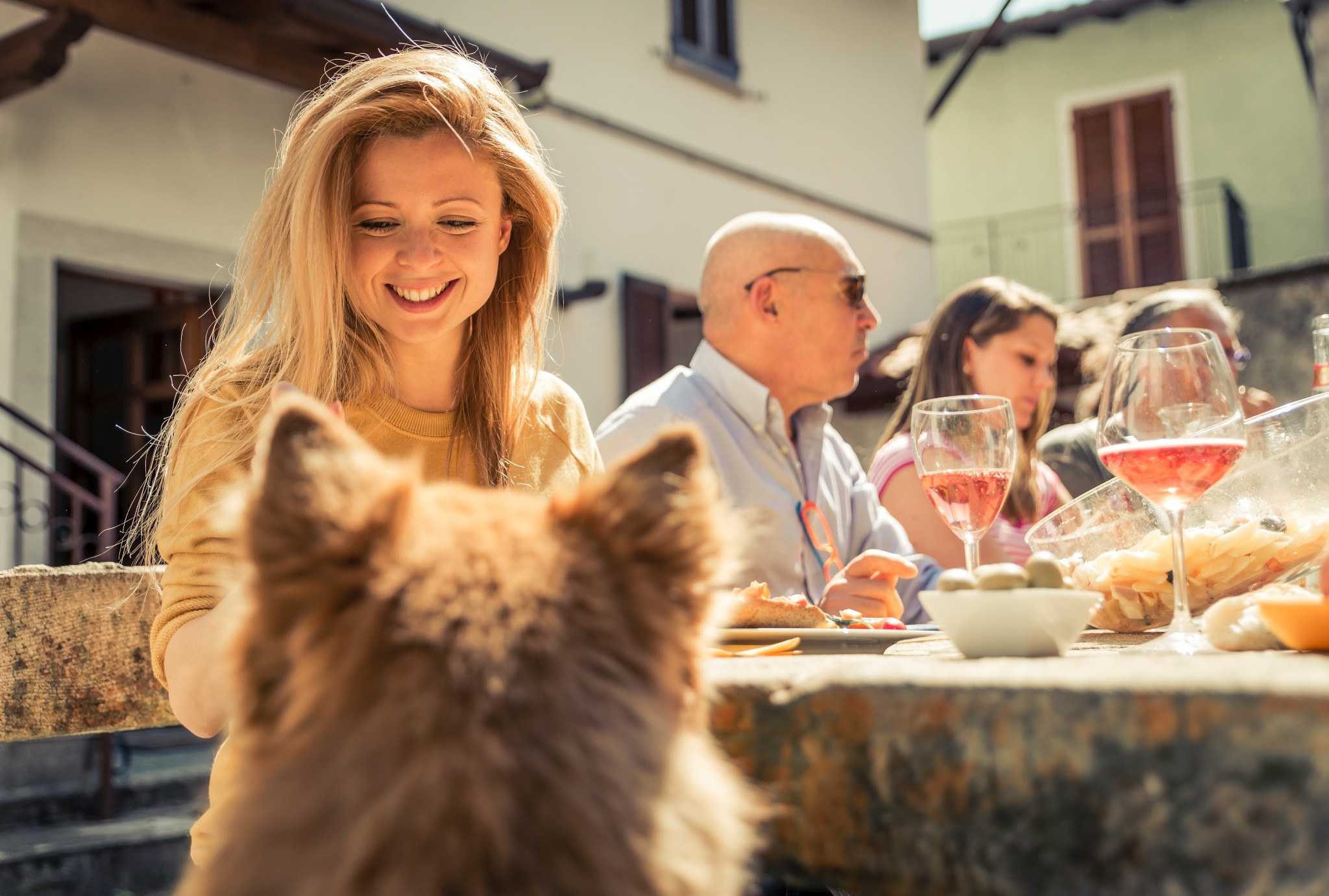 Fun tip: freeze some berries or other fruit in ice for a sweet treat that will keep your dog entertained for hours.
Fun tip: freeze some berries or other fruit in ice for a sweet treat that will keep your dog entertained for hours.
Clean up balloons and firework debris from the backyard as soon as possible.
Following your backyard party, run a rake through the grass to make sure you’ve gathered all sprinkler/firework debris, broken balloons, and food scraps. If a water balloon fight is part of the party plans, have the kids race to see who can pick up the most balloon scraps once the game is over. Store the scraps in a milk jug to prevent curious babies (and pets) from finding them. If you find sparkler/firework leftovers, toss them into a bucket of water as you’re cleaning up to make sure they’re really cooled off.
Keep your pets and kids cool with plenty of water and inside activities during the heat of the day.
Both kids and pets can easily overheat on a hot day. During a long day of celebrating it’s especially easy to lose track of time. Make sure your kids and pets are getting enough to drink and having some cool-down time outside of the summer heat. Heat exhaustion could lead to heat stroke, which is deadly.
Symptoms of heat exhaustion include:
Pets:
• Panting
• Excessive drooling
• Reddened gums
• No urine
• Lethargy
People:
• Pale or flushed face
• Dizziness
• Headache
• Nausea/vomiting
• Tiredness
• Cold, clammy skin
• Muscle cramps
Provide kids and pets with lots of water and plenty of shade to cool off. Consider keeping kids and pets out of the hottest heat of the day (between 12 p.m. and 3 p.m.) by planning indoor activities.
Keep your dog calm by cuddling with your dog and blocking firework sounds with music.
It’s quite common for dogs (and even cats) to startle at the sound of fireworks. Some may even display extreme signs of discomfort like shaking, hiding, urinating, barking and whining. Most studies are unclear about why dogs have this fear (studies focused on the sound of thunderstorms) though the same could be true for grown adults too! If your pup is sensitive to the celebratory noise there are a few things you can do to comfort your furry friend:
• Turn on the TV or radio to block some of the firework noise.
• Cuddle with your pet and offer lots of snuggles and pats.
• Try a Thundershirt, which provides extra weight and can be comforting for some dogs.
• Let your pets hide under the covers.
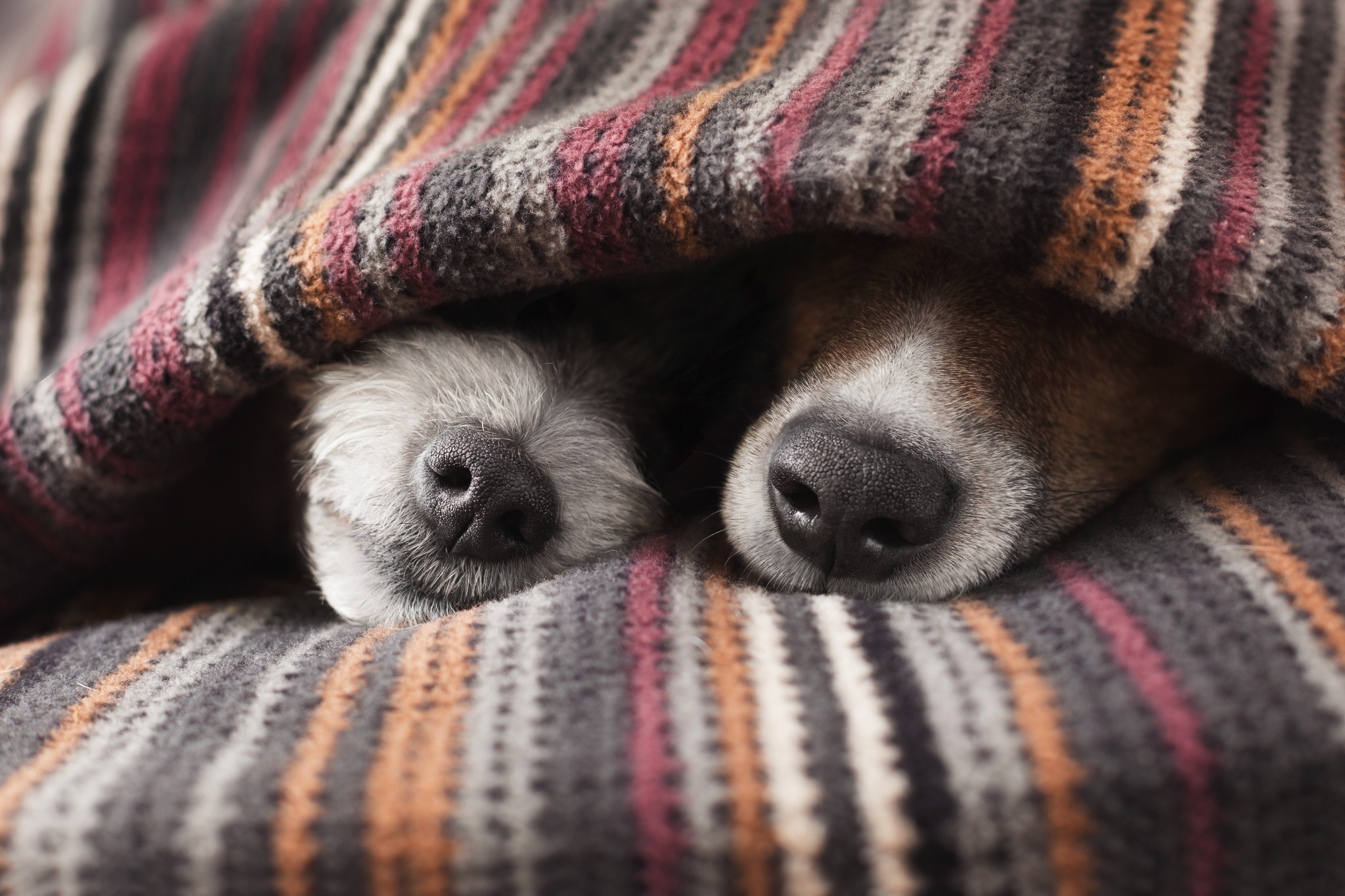
Keep an eye on alcoholic beverages so kids and pets don’t ingest them accidentally.
If you plan to drink alcohol, make sure to keep the stuff away from kids and pets. Alcohol is toxic to dogs and it could make little ones very sick. Consider having a non-drinking pal watch the party so everyone goes home safe. Store all alcoholic beverages out of reach of both pets and kids. If you notice signs of disorientation, drunken behavior, vomiting, difficulty breathing, or seizures, get your pet to a vet immediately.
Check your pets and your kids for ticks after celebrating in the woods.
This tip is good for both kid and pet: If you’re headed to the woods for your big celebration, keep kids in light, long-sleeved shirts and long pants. Once you get home, check your kids (and your pets) for ticks. For your pet, pay special attention to the feet, ears, armpits, head, and tail. Rub your hands through their fur (reaching to the skin), if you feel a lump, pull the hair away to see if you can spot a tick. For kids, check their hair, underarms, and behind their legs.
Designate a no-fly zone for kids and pets when the BBQ is hot.
Another double whammy: The barbecue. The barbecue is just as dangerous as a stove (if not more so). The barbecue should be a kid-free zone. Consider setting up a child gate around the area to keep pets and kids away. Make sure to store any propane tanks away before beginning fireworks to avoid serious accidents.
Kid Safety
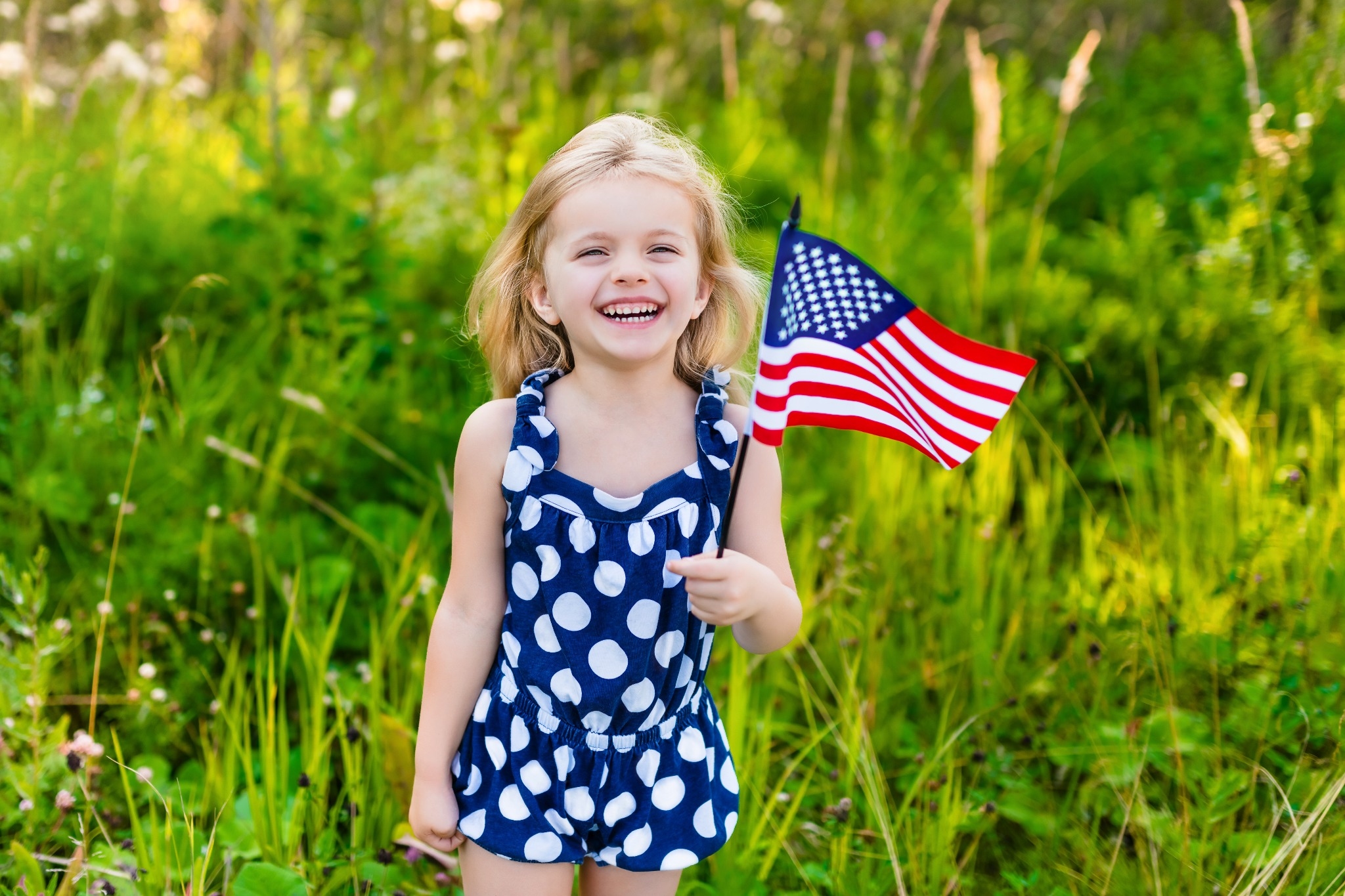
Every July, hundreds of people die or are injured while participating in Independence Day celebrations (In 2015, 11 people died and 11,900 people went to the hospital after firework-related injuries), the CPSC reported. Factor in the injuries and deaths from car and swimming accidents and the Fourth of July might feel scary for anyone – especially kids. Below are some ways to stay a little safer this year, especially with your children. Follow these, and you can enjoy a burger at your backyard barbecue in peace. (Fun fact: Americans buy some 190 million pounds of burger every year in preparation for festivities.)
Take a snapshot the day of your party so you remember what your kids are wearing if they get lost.
When the crowds begin to swell, it’s easy for little ones to wander away. A simple tip to make them easier to find is to take a photo of your little ones the day of your festivities. You’ll be able to show any police officer or helpers exactly what your little one was wearing, making them easier to spot in a crowd.
Use ID tattoos to help little ones get back to you if they are separated in a crowd.
One fun trick is to get temporary safety tattoos for your kids with their name, address, and phone number. Put these on their shoulder where a stranger can’t see it, but your child can easily access to show a police officer. You can make your own by writing the information on their skin with eyeliner and then covering the ink with high-end hairspray, clear nail polish, or a liquid bandage.
Make the kids easier to spot in a crowd with a glow stick lantern or matching hats.
Make it harder to lose your kids by using small mason jars to create a glow stick lantern. Simply clean out an old jar and fill it with water. Break large glow sticks (to activate the mixture), then cut them open with scissors. Pour the mixture into the water and seal the lid tightly. Alternatively, you can use tealight candles in a small jar. You may also consider matching shirts or hats for the entire family.
Protect their hearing with headphones and stay a football field away from explosions.
While fireworks are fun to watch, they can be dangerous in more than one way. In addition to being a fire and burn hazard, being too close to a firework explosion can cause hearing loss. Health experts recommend keeping little ones at least 500 feet away from the source of firework explosions (that’s about 1 ½ football fields away). Doctors recommend keeping children under 1 completely away from the loud noises. Alternatively, you could invest in protective earmuffs to keep their ears safe.
Prevent sparkler burns with a paper cup over the hand.
Keep little hands safe from sparklers (which can burn at more than 1800 degrees Fahrenheit) by turning a cup upside down and poking a small hole through the top. Slide the sparkler stick through the hole and have the kids hold the stick inside the cup. Any sparks will hit the cup and not their hands. If you’re feeling a little craftier, this adorable star option from The Nerd’s Wife is a good choice. In addition, make sure your little ones aren’t wearing clothing that is too loose and tie any long hair back in a braid or ponytail.
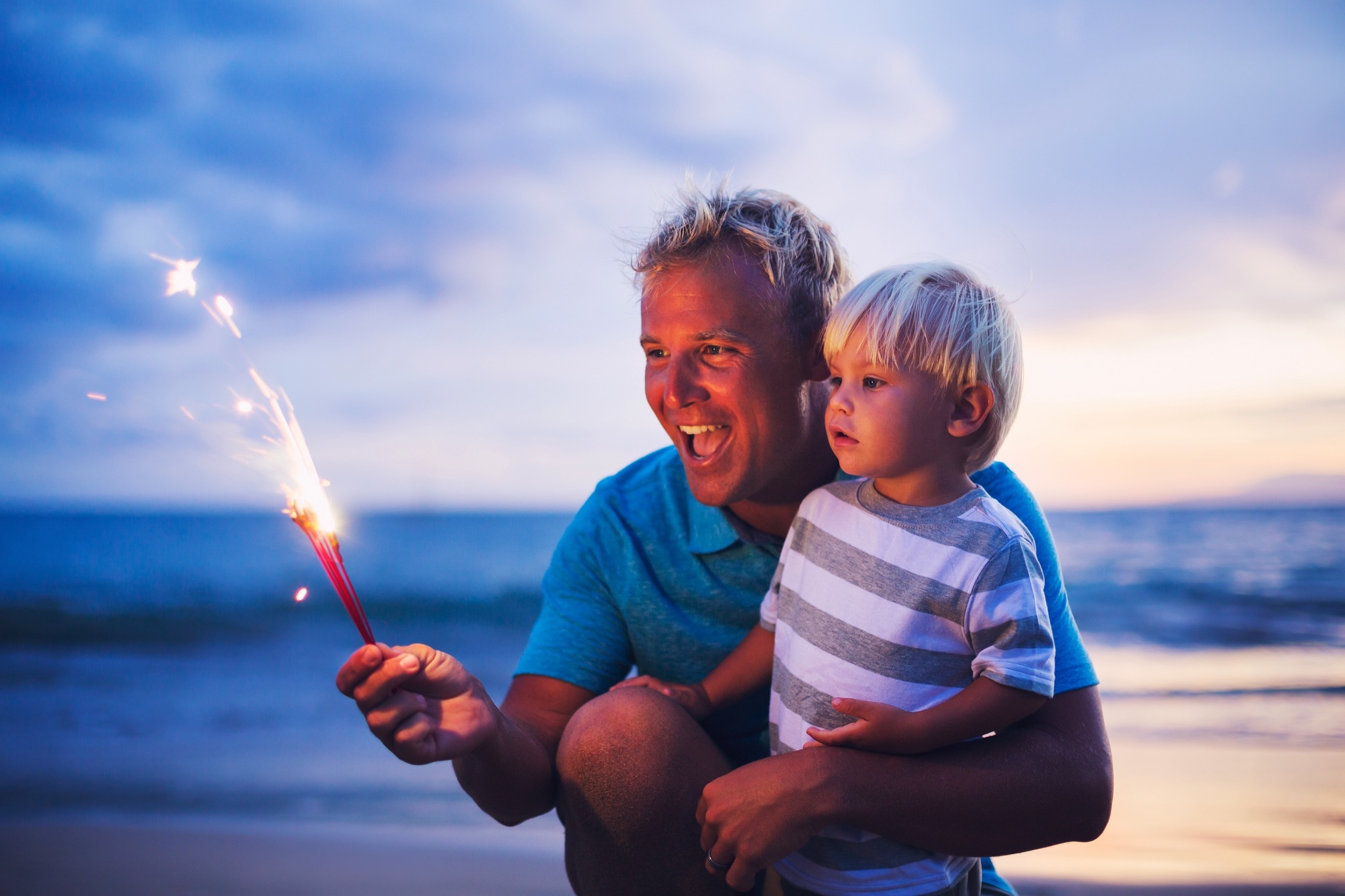
Most importantly, remember that while fun, sparklers are dangerous. They are very hot. Always watch little ones while they enjoy these hand-held fireworks.
Know the 4 S’s of water safety: Supervise, Secure, Save a life, Swim and survive.
If your Independence Day celebrations include swimming, you’ll want to be extra careful around the water. To keep everyone safe remember the four S’s:
• Supervise: Always have a responsible adult with kids at the pool or lake. Make sure there are enough adults to supervise all the kids and do not rely on kids to monitor their younger siblings.
• Secure: Pool areas should have a safety gate or locked door when not in use to prevent little ones from sneaking out without notice and falling into the pool.
• Save a Life: Consider getting CPR certified so you know how to help in the event of an emergency.
• Swim and survive: Teach your little ones how to swim. Knowing how to swim will keep them safer (though supervision is still essential for young kids).
Give the kids sunglasses to protect against firework debris.
Keep little eyes protected from sparks and embers flying off fireworks you set off at home. Keep children as far back as possible from the person lighting the fireworks and consider letting your little ones (and the firework lighter) wear protective glasses – even sunglasses will offer some protection.
If a firework hits someone in the eye, check out the damage. If there doesn’t appear to be any tearing or bleeding, try flushing the eye out with saline solution. If the damage is more severe or there is vision loss, cover the area with a hand and get to the doctor immediately.
Soak used fireworks to prevent fires.
Do not relight dud fireworks and hose down any explosives (duds and ones that exploded) to prevent fires. This applies to used sparklers as well. A good dousing of water should prevent fireworks from causing damage. The Miami-Dade Police recommend soaking used (or old) fireworks in water overnight then wrapping them in plastic bags before tossing them out.
Take extra precautions with backyard games by wrapping stakes in bubble wrap.
There’s nothing like a good backyard game to get the entire family excited. Barring any family brawls (because that never happens), there are a few other ways you can keep the family a little bit safer.
• If you’re planning on putting up a volleyball net or other game, consider wrapping stakes in bubble wrap. This will keep shins and knees safe if someone should trip.
• Set a designated play area that’s far away from any grills, yard equipment or other hazards and don’t forget to stash yard tools in a locked shed.
• Set up a play yard: If any games involve throwing (Ladder Ball anyone?), set up a play area for smaller kids to hang out so a stray ball doesn’t whack them in the noggin.
• Double check all playground equipment before guests arrive to prevent accidental falls.
Double down on food safety by keeping foods in a cooler when you’re not eating.
There’s nothing quite like food poisoning to ruin a holiday. Keep the pesky food-borne illnesses at bay by keeping meats, eggs, dips, and cheese in a cooler or the refrigerator. Keep fruits and veggies covered too. You can keep some items cool longer outside by filling a large bowl with ice and placing a smaller container filled with your food on top.
• Store perishable foods at 40 degrees Fahrenheit or cooler. Pack more food into the cooler to keep it colder longer.
• Keep drinks in a separate cooler so you don’t have to open the food every time someone needs a drink.
• Toss any perishable foods after they’ve been sitting out for more than two hours (or more than an hour if temperatures soar over 80 degrees Fahrenheit).
• Pack water, soap, and paper towels so everyone can wash their hands (especially anyone in charge of food prep).
• Always cook food to the proper temperature (pack a meat thermometer if necessary).
Have fun, and remember to enjoy your purple mountain majesties and amber waves of grain safely this year!


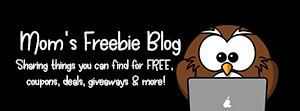


Leave a Reply